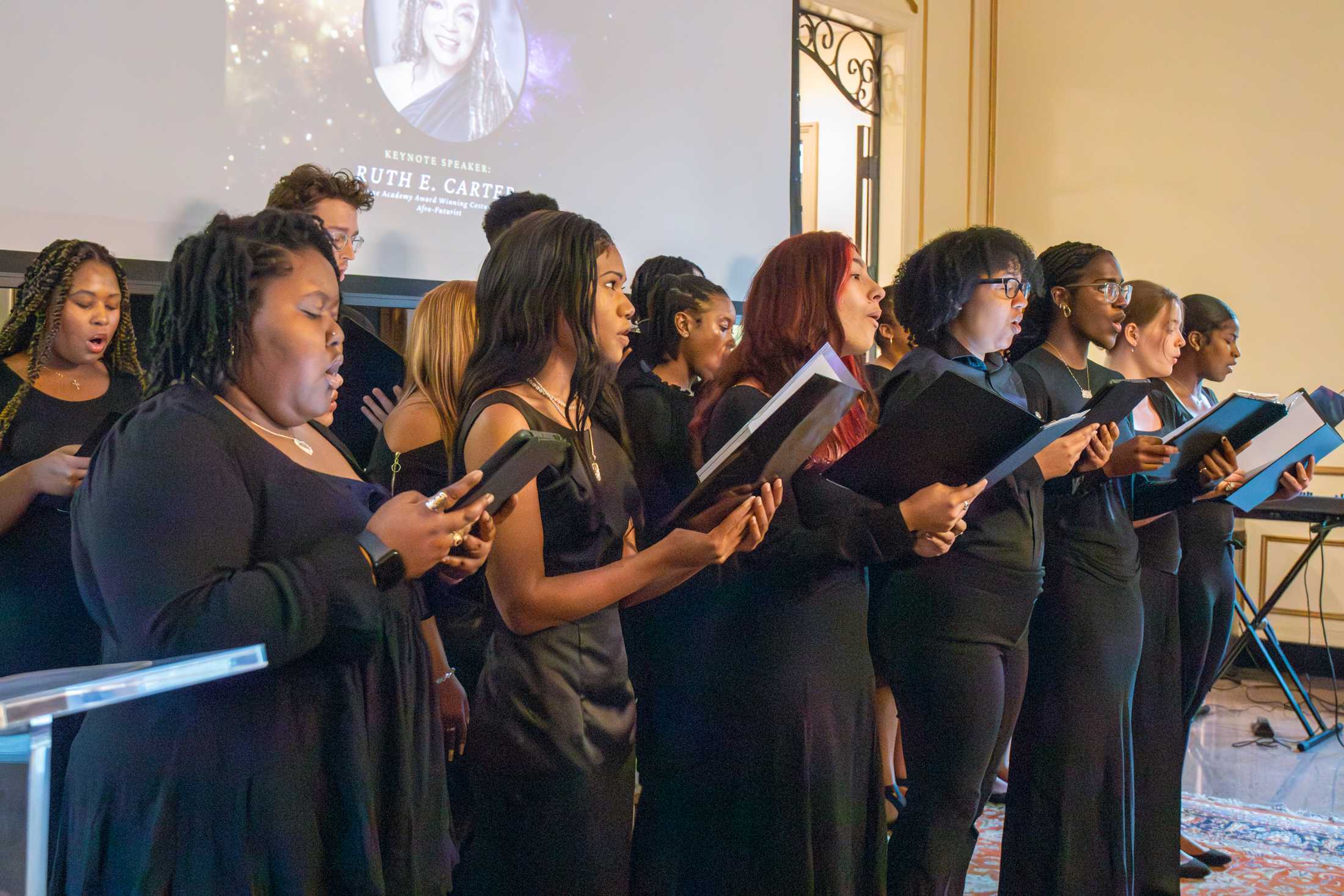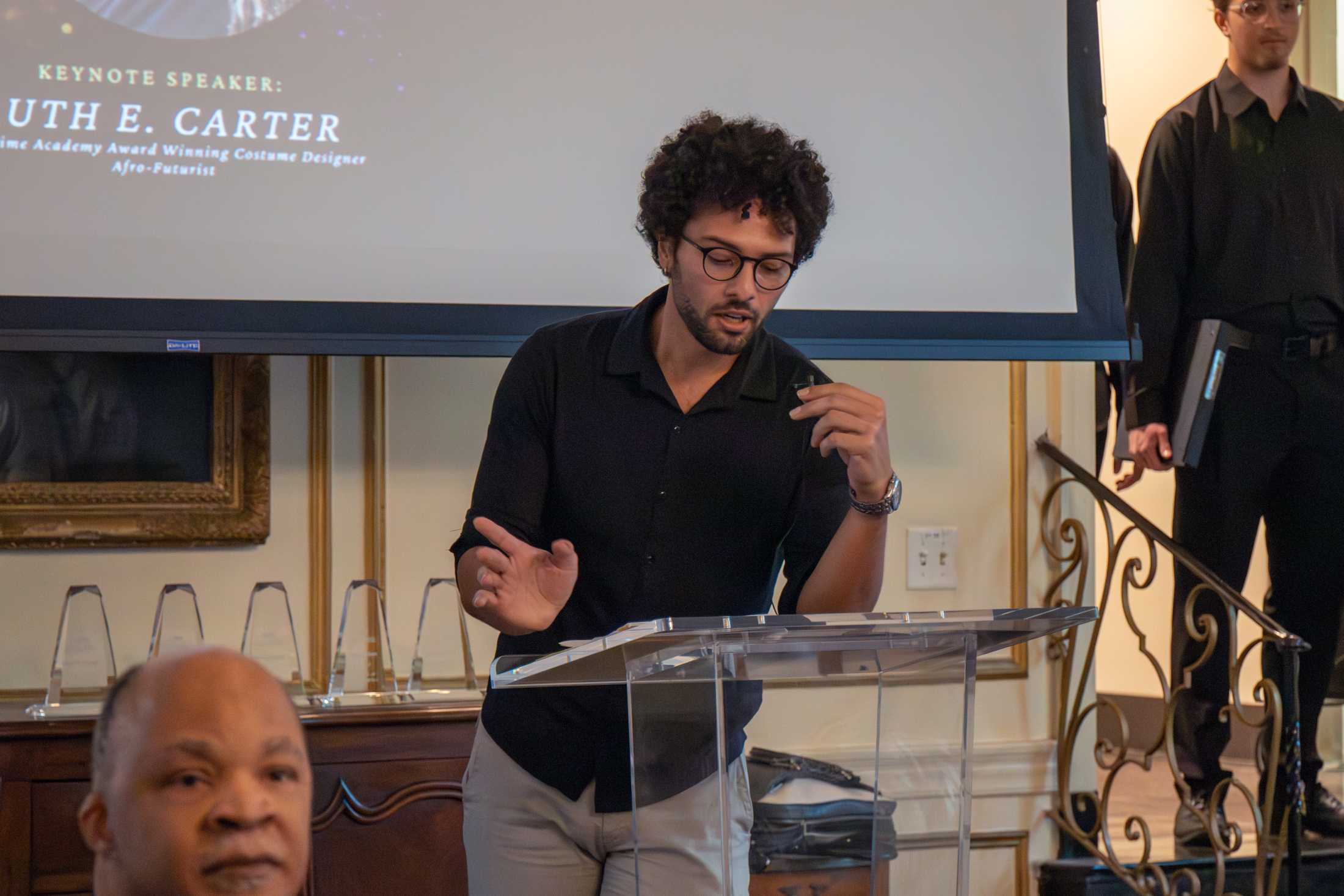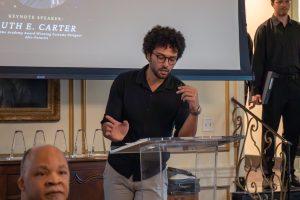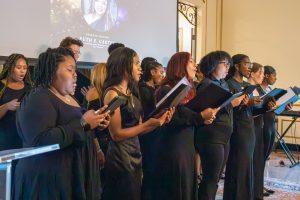The LSU African and African American Studies Department celebrated their 30th anniversary at a French House event on Oct. 25, welcoming department faculty, students and affiliates to celebrate “30 Years of Transcendence.”
As attendees arrived, they were welcomed by a jazz band. People conversed over chicken and sausage gumbo dinner as they waited for the night to begin.
The event started with a welcome from Asha Winfield, an AAAS affiliate faculty member and one of the co-chairs of the event’s planning committee. Winfield called the celebration a homecoming for many who have been part of the department’s 30-year history.
Casey Patterson, an affiliate and assistant English professor, followed, giving a speech about the department’s theme of the night: “This Is How We Do It, 30 Years of Transcendence.” Patterson highlighted the similarities between the department and the song, “This Is How We Do It” by Montell Jordan, with both created months apart in the mid-1990s.
He talks about how the song never describes “we” or “it,” but just happens. Instead, the titular line manifests itself through people participating. “It” is an indescribable experience, but it happens all the same, according to Patterson.
“Then or now, it would be difficult to describe the strategy, poise and care required for AAAS to rise and thrive over the coming 30 years,” Patterson said. “But it’s the business of Black culture to do what can’t yet be described.”
To close, Patterson introduced the LSU Gospel Choir, saying “They will be able to show, far better than I can tell, what we mean by transcendence. So, I’ll just close with an inside crypt from my good friend Dr. Henry Washington Jr., who has observed that gospel performance is deeply embodied, even as its goal is transcendence … When we celebrate 30 years of transcendence, we are celebrating that AAAS has made it all the way from then until now.”
The LSU Gospel Choir filled the room to sing “Lift Every Voice and Sing,” a song often referred to as the Black national anthem. As they began, the entire room stood, and from the very first note, every person came together. Some joined the choir, painting the story, pain, triumph and transcendence of the Black community.
People were mesmerized by the performance. Some swayed, hummed and sang. As the song lifted and came to a close, there were tears and faces filled with memories and nostalgic smiles. Once the song ended, chatter rose. People remembered singing it with their families, schools and communities.
The LSU Gospel Choir returned later during the event to sing two more songs, each time holding the room’s attention. Their closing song received a minutes-long standing ovation from the attendees.
Later in the evening, a video celebrating AAAS’ Anniversary was played, starting with a message from Jordan. The video explained why the department is so important, noting that AAAS only became a department in 2022. Prior to then, it was a program.
The celebration continued with a keynote address from two-time Oscar winning costume designer Ruth E. Carter, the first Black woman to win multiple Oscars. She earned Oscars for her work on Marvel’s “Black Panther” and “Black Panther: Wakanda Forever,” and received nominations for Malcom X, Amistad and Roots. She has a star on the Hollywood Walk of Fame, two honorary doctorates and the key to her hometown of Springfield, Massachusetts.
Before walking to the podium, the entire room stood and gave her a standing ovation.
“Art connects us to something greater than ourselves,” Carter said in her speech. “Creativity is a divine expression.”
“When I made history on the Oscar stage – twice – it was one of the proudest moments of my life, Carter said. “Not just for me but for every little Black girl who dared to dream.”
Following Carter’s speech, the Champions of Transcendence Award was introduced and given to six people, with Carter being one of the recipients. Collis Temple Jr., an LSU alumnus, athlete and entrepreneur, was the first awardee. Also awarded were Lori Latrice Martin, an LSU professor and associate dean of the College of Humanities and Social Sciences and Joyce Marie Jackson, a geography and anthropology professor.
Clint Odom was another awardee. He works at T-Mobile as the vice president of strategic alliances and external affairs. Before that, he worked for Vice President Kamala Harris as a legislative director, helping pass the bi-partisan Emmett Till Anti-Lynching Act in 2022.
Thomas Durant Jr., AAAS’s founder and former director, also received the award. He gave an “Appeal Toward Transcendence” in his speech.
The program soon came to a close. People began to talk, congratulate one another and enjoy the October night. Patterson has only been working with AAAS for about a year, but he said it was beautiful to see all the people who made the department what it is now all come together.
“Being able to see the work that LSU has been able to do for Black students has been amazing, and I’m glad that AAAS is continuing that work,” Patterson said.
Patterson also emphasized how important it is that LSU continues to serve Black students and its wider community.
“We are the biggest public institution in the state, and Louisiana is a Black state,” Patterson said. “This state has no coherent history if it isn’t a Black history. And AAAS is one of the keyways we can make sure that history, that culture, is reflected in the curriculum. It’s one of the ways we can tell Black students, ‘This is your university, this is your state.’ If LSU isn’t doing that and isn’t supporting that, we are not doing our job as its flagship institution.”











